Ex-Gay Survivor Narrative
Eric 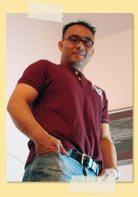
My name is Eric Leocadio. I am an Ex-Gay Survivor.
To say that I wanted to be straight is an understatement. I knew that I was gay since I was 9 years old. Even at that early age, I knew how socially unacceptable it was for me to like other boys my age. It was never anything I had to figure out. I simply knew that I was gay and no one could know.
By the time I reached my freshman year in high school, I tried to kill myself. I was a teenager and the message that I received for so many years by my friends, my family, my classmates and myself, was that I was not acceptable because I was gay. I looked in the mirror and I hated that guy. So I wanted to die.
I was tired of feeling rejected. I was tired of feeling different. I was tired of feeling like no one really knew who I was because there was a part of me that had to stay a secret. The closet is a lonely place.
I was 14 years old when I cupped both my hands together, filled them with pills (asprin, Tylenol, and such), swallowed every one, and washed them down with water. Then I fell asleep. Three hours later I woke up in complete regret as I began the process of having my body involuntarily spew out the contents of my stomach. I vomited for several minutes, divinely timed, from 7:00 PM through 5:00 AM every hour on the hour on the dot. These were grueling sessions with what I refer to as my “porcelain punisher.” I experienced 10 hours of bile-filled hell. After living through this, I wanted to die!
I didn’t tell anyone at home what I had done. No one would have taken me to the hospital. So God, before I knew Him, pumped my stomach for me. I realized, then, that He wasn’t done with me yet.
I survived, in pain, my own suicide.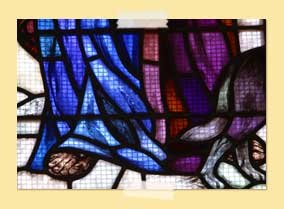 I eventually became a Christian when I was 16 years old. I grew in faith and in my knowledge of God and I embraced a Church family and Church culture that I desperately wanted to be a part of – to be accepted by. This was a culture that valued heterosexuality as prime and superior. To come out as anything but straight would have been social suicide. And I was a part of this culture. For over 12 years, I believed, taught, and advocated that it was a sin to be gay. My only outlets of expressing my sexuality were limited to those things done in secrecy. This further fractured my sense of self as I maintained a dualistic life – one lived in public light and the other lived in private darkness.
I eventually became a Christian when I was 16 years old. I grew in faith and in my knowledge of God and I embraced a Church family and Church culture that I desperately wanted to be a part of – to be accepted by. This was a culture that valued heterosexuality as prime and superior. To come out as anything but straight would have been social suicide. And I was a part of this culture. For over 12 years, I believed, taught, and advocated that it was a sin to be gay. My only outlets of expressing my sexuality were limited to those things done in secrecy. This further fractured my sense of self as I maintained a dualistic life – one lived in public light and the other lived in private darkness.
I had pleaded with God to change me. I had pleaded with God to forgive me. I’ll be the first to admit that I’ve made some mistakes. I have done things that I regret. But you cannot develop a healthy sexuality in the secret places. I explored my sexuality in unhealthy ways, without the input of my spiritual community because talking about it would have meant revealing the secret that I was gay. And the Church isn’t so good at talking about its own taboo secrets.
I decided that I needed help so I participated in ex-gay programs of Desert Stream Ministries. For roughly two years from 2002-2004, I was a part of their informal support groups called Cross Current. In 2004, I completed their six-month program called Living Waters designed to assist people with their “sexual and relational brokenness”. At the time, I believed along with them that homosexuality was a form of brokenness. I thought that I was broken. They told me that embracing a heterosexual value system was needed in order for my restoration and wholeness.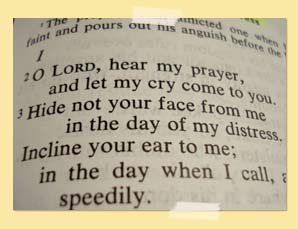
After spending several hundred dollars and countless hours in the ex-gay program, I graduated still believing that being gay was a sin and that being straight was the ideal. Unlike so many others who have survived traumatic experiences from programs like these, I was one of the lucky ones who didn’t exit the program terrorized. Perhaps, it was because I bought into their notion that I may have to live with being gay for the rest of my life but that there were tools that I could implement to suppress my homosexuality so that I could outwardly present myself as straight – as ex-gay.
Over the years, I used to participate and sometimes lead prayer groups against the gay community. But while praying these things to God, at the same time He spoke back to me over a period of months asking me two things: Why are you praying against a people that you don’t even know? Why are you praying against them when you are one of them?
God led me to realize that I really didn’t know gay people because out of my own shame I avoided them. He also challenged my hypocrisy. I realized that I couldn’t own my beliefs that it was wrong to be gay. I believed such things because that’s the only thing I was taught. So in 2005, I began my own personal journey of allowing my two dualistic worlds to collide, to enter what I call the “hot zone” – that place of conversation where the issue of faith and sexuality and God are no longer the taboo subject.
I invested countless hours in prayer – but this time it wasn’t for God to make me straight but rather it was for God to show me His heart for gay people. I spent time in the Scriptures and studied, for myself, the passages that referenced homosexuality and also looked at the Bible as a whole and in context with this newer lens. I began to meet gay people absent of any conversion agenda. I wasn’t going to convert anyone to be either straight or Christian. My intention was simply to get to know people and to build genuine relationship. What I found changed my paradigm.
I discovered that God was present in the gay community. I previously assumed in error that it was full of darkness but I discovered that God was among them. I met friendly gay people who loved God and/or wanted to learn more about Him. I met gay Christians with a genuine faith. I met gay people who were actually having spiritual conversations in coffee shops, bookstores, clubs, bars, and in restaurants. I met gay people who affirmed a lifestyle of commitment and monogamy and faith.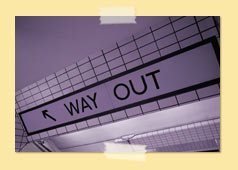
Being a witness to these things opened a can of worms for me. I saw God among the very people that the Church interpreted to be unclean. Great! Now what? What does this mean for all of my previously held faulty assumptions about gay people and their place in the Church? I was wrong. I had to change my paradigm based on what God was revealing to me. I realize how hard this is for people (like me) who had been so confident about such assumptions about gay people. It requires humility. The truth is that since God is present and working and moving and touching, there is light within the gay community and I discovered that it was indeed possible to live a lifestyle of genuine faith in God within the context of being a gay person. So I reconciled my faith and my sexuality.
I acknowledged that I am a gay Christian.
I chronicled my journey in a blog called Two World Collision. It served as an outlet for me to process my raw thoughts. I received incredible feedback, including countless emails from people around the world who were relating with what I was journaling. As I shared my story and as we discovered each other, suddenly, we weren’t alone anymore. There was someone else somewhere out there that understood. Over the past two years, I’ve received a global readership with over 63,000 hits to the blog. There’s been a kind of community that has developed, as I’ve been increasingly willing to be vulnerable with my story and others have been with theirs.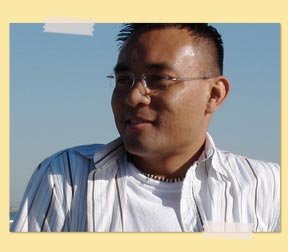 I have since realized that ex-gay programs and the mainstream Church presents a mixed message to people like me. They tell us that God loves us unconditionally but that the Church will conditionally accept us as long as we conformed to their interpretation of “wholeness.” It is this mixed message that leaves people with a difficult choice: to renounce their sexuality or to renounce their faith.
I have since realized that ex-gay programs and the mainstream Church presents a mixed message to people like me. They tell us that God loves us unconditionally but that the Church will conditionally accept us as long as we conformed to their interpretation of “wholeness.” It is this mixed message that leaves people with a difficult choice: to renounce their sexuality or to renounce their faith.
These are the casualties of ex-gay programs.
The truth is that we are a part of God’s Church. Regardless of whether or not the Church would accept us as part of itself, God has accepted us through our faith in Christ.
It’s okay to come back.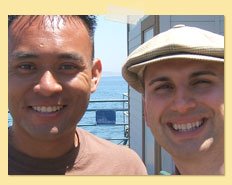 As an ex-gay survivor, I know what it’s like to be in a spiritual climate hostile to my sexuality. I survived suicide. I survived my own attempts to manipulate my identity. Now I’ve found peace and healing through authenticity.
As an ex-gay survivor, I know what it’s like to be in a spiritual climate hostile to my sexuality. I survived suicide. I survived my own attempts to manipulate my identity. Now I’ve found peace and healing through authenticity.
I may not be perfect but I am whole.
I’ve made difficult decisions in my life. I’ve done things that I regret. However, my character is not defined by the mistakes I’ve made but instead by the lessons I’ve learned.
There is a difference between being gay and expressing one’s sexuality in unhealthy ways. Both gay and straight people are fully capable of making poor decisions. The issue is not about whom we should love but rather it is about how we should love.
As a community of people who value God, faith, and each other, whether gay or straight, let’s explore what it looks like to love better.
Eric has also told his story through a series of YouTube videos
Part One: Suicide & The Porcelain Punisher
Part Two: The Ex-Gay Program
Part Three: Isolation and Exclusion
Part Four: Side X Culture
Eric maintains the blog—Two World Collision and is the founder of Catalyst, a movement that seeks a culture in Long Beach that embraces meaningful relationships, community partnership, and resident ownership of the city.
Read other ex-gay survivor narratives.
